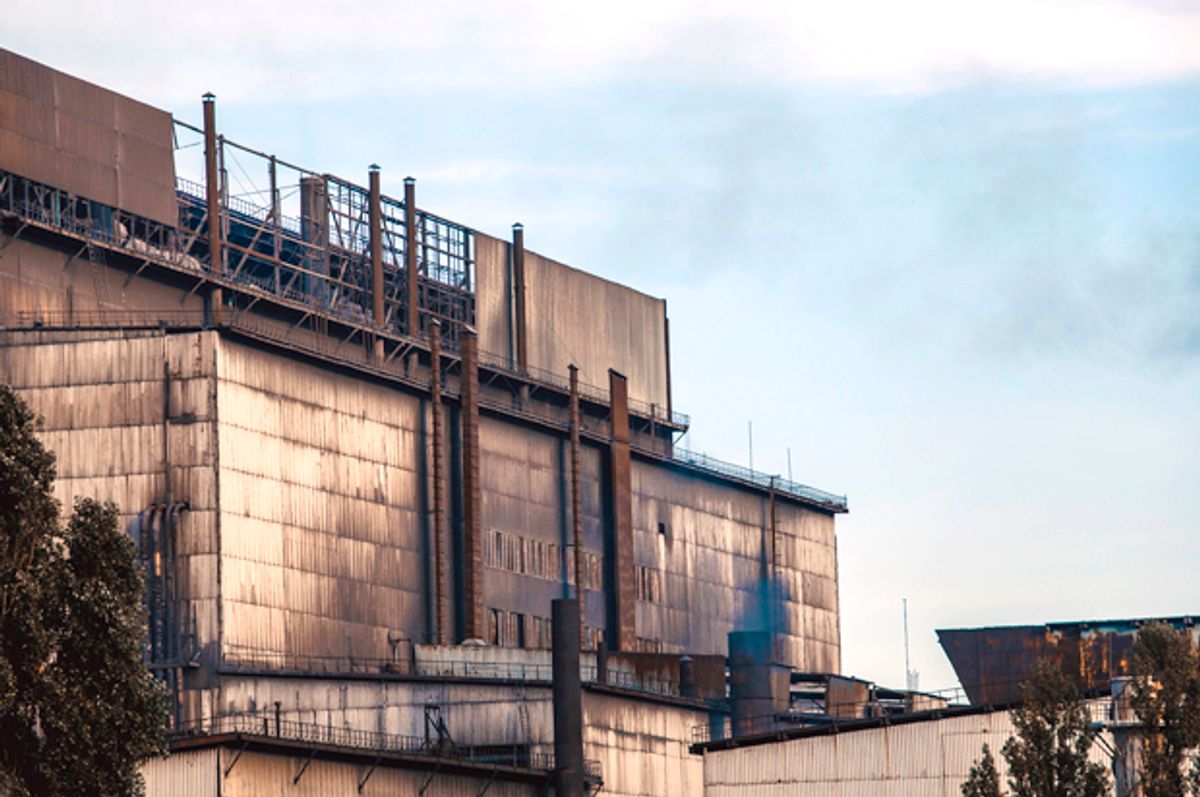The idea of a hydrogen-powered car sounds romantic to anyone who dreams of a green future; such a car would burn hydrogen, the most abundant element in the universe, and produce water exhaust rather than carbon dioxide. Indeed, it’s enticing to use the same energy source that NASA is exploring for use in future aerospace vehicles to replace filthy, pollutant-spewing gas guzzlers.
Unfortunately, today’s technology is not sufficient to produce hydrogen from renewable energy resources (like solar, wind, hydroelectric and geothermal) in enough quantities to make hydrogen fuel cell (HFC) vehicles truly green. While in some places in the U.S. it’s possible for electric cars to run largely on renewable sources of electricity, the same isn’t true for HFC cars, which often get their hydrogen from fossil fuels.
Currently, about 95 percent of the hydrogen the U.S. produces comes from a process that requires natural gas, according to the U.S. Department of Energy. Meanwhile about 15 percent of the country’s electrical production comes from hydroelectric or other renewable sources excluding nuclear power. As power plants gradually wean themselves off of coal and natural gas, electric cars will become greener at a much faster rate than HFC vehicles. With the current technology, producing hydrogen from clean energy sources, then storing and delivering it, is simply not feasible -- yet.
“Hydrogen production from fossil fuels is the most cost-competitive,” Y.H. Percival Zhang, an associate professor of biological systems engineering at Virginia Tech's College of Agriculture and Life Sciences, told Salon in an email. “But this process releases a lot of [carbon dioxide].”
Zhang, who has been studying ways to harvest hydrogen from renewable energy sources, says he believes that HFC technology will eventually help to replace internal combustion engines in vehicles and a significant fraction of central electricity generation stations. Whether this can be done using completely renewable energy sources is currently something researchers like Zhang and others are studying.
Meanwhile, advances in battery technology are moving at a faster pace.
“Hydrogen cars have missed the boat,” Joseph Romm, a physicist and a senior fellow at the Center for American Progress, told Salon in November. “This is like Betamax competing against VHS tapes in the ’90s. Once the market decides it’s going one way, the loser is screwed.”
Indeed, thanks largely to billionaire futurist and Tesla Motors co-founder Elon Musk, the world seems far more enamored with battery-powered electric cars than ones fueled by compressed hydrogen gas. (Despite being the world’s best-selling electric car by a long shot, the Nissan Leaf, which is affordable and greener than the 2.5-ton Tesla Model S, doesn’t get quite the same love and attention, largely because it has a lesser range and fewer electronic bells and whistles.)
Even if HFC car owners are willing to accept that hydrogen cars aren’t as clean as electric cars, there are still plenty of challenges to wider adoption of the technology. The most obvious is the lack of infrastructure. The number of consumer-facing hydrogen fueling stations worldwide numbers in the dozens. Hydrogen is also difficult to store and transfer.
For his part, Zhang says many of the challenges will be addressed and the market will drive advances in making hydrogen production more energy efficient and greener.
But that’s the future. Today, hydrogen production from renewable energy sources is nowhere near where it would need to be to provide enough hydrogen to support a small number of HFC vehicles.
Officials at the U.S. Department of Energy believe that hydrogen will eventually follow a similar path as electricity, in which hydrogen derived from natural gas “will be augmented with production from renewable, nuclear, coal (with carbon capture and storage), and other low-carbon, domestic energy resources,” according to the department’s website.
Some automakers, including Toyota, which in 2015 unleashed its own hydrogen fuel cell vehicle called the Mirai to complete with the Honda Clarity, is betting that the advantage electric cars have over hydrogen may eventually diminish. Automakers, including General Motors and Audi, have invested heavily to ensure they don’t get left behind in the event of a major breakthrough toward the so-called hydrogen economy.
But until breakthroughs happen that make hydrogen greener in enough quantity to meet mass-market demand, the greenest option for car owners is to buy a small, lightweight electric car or plug-in gas-electric hybrid. Greener still: Don’t buy a new car if you don’t need one.

Shares